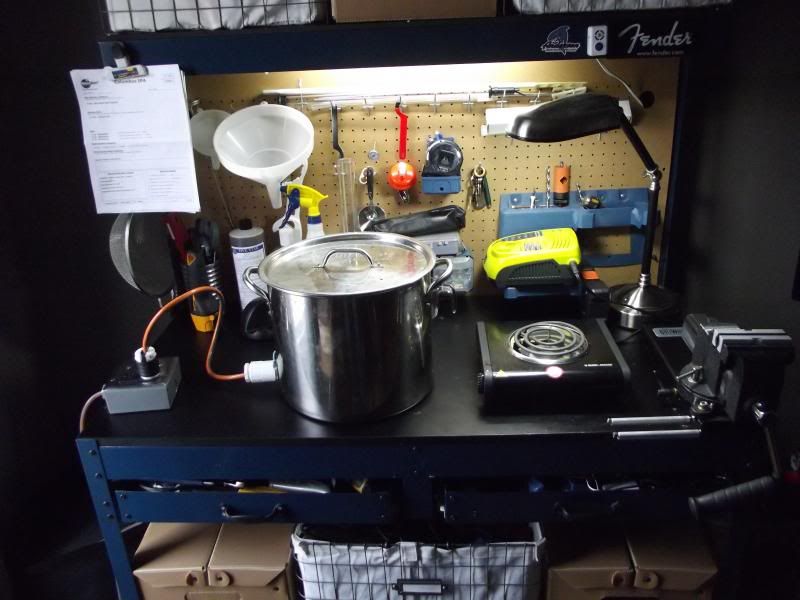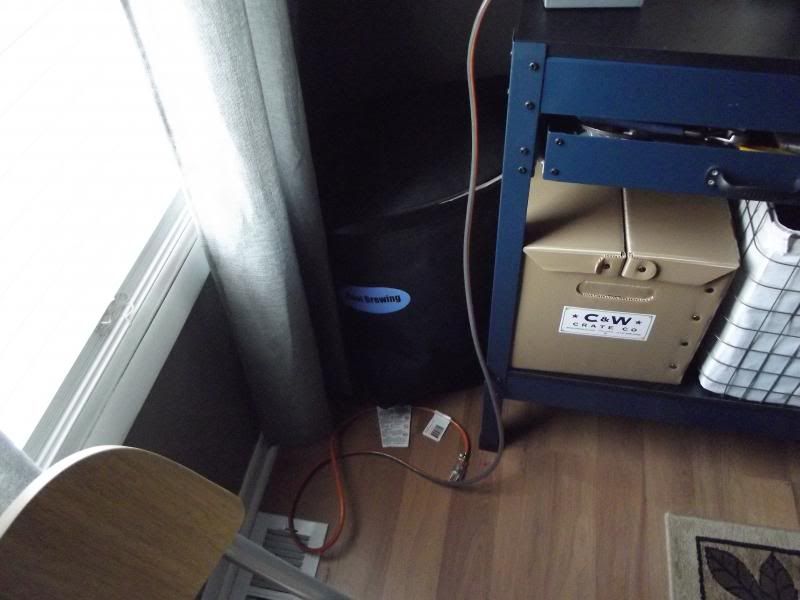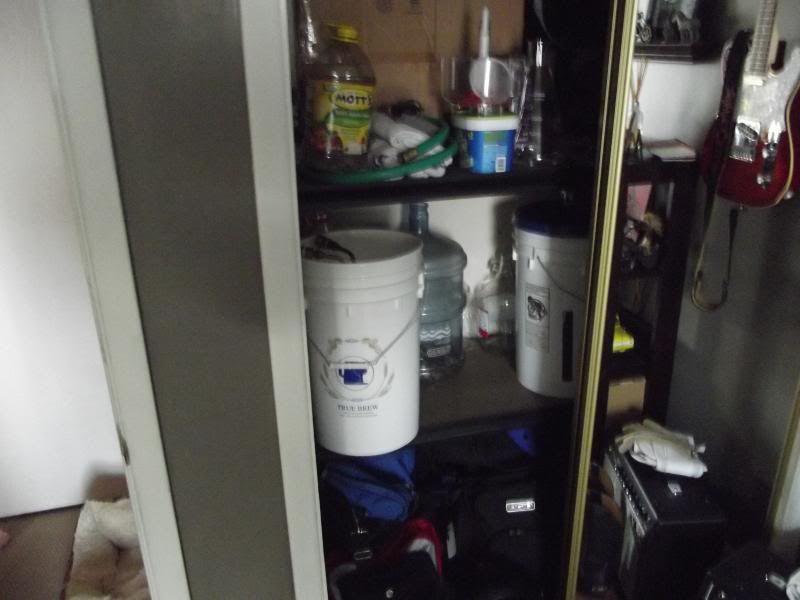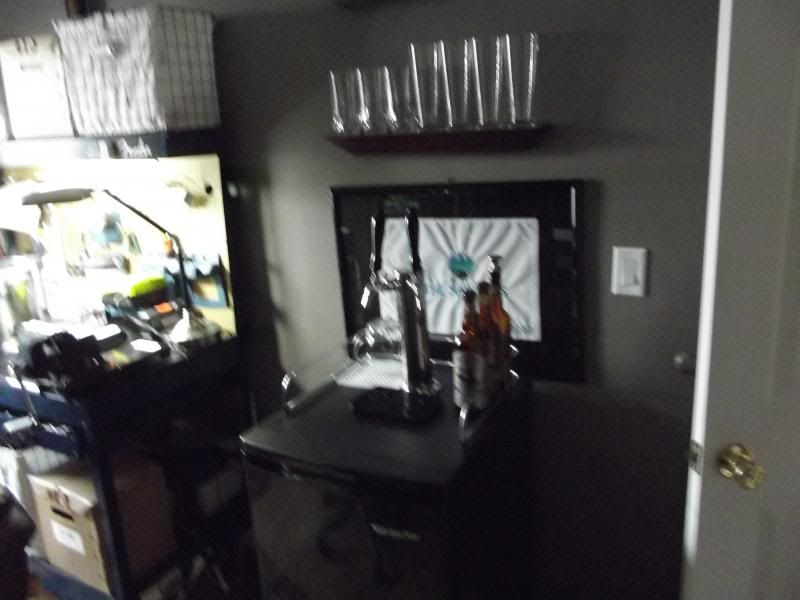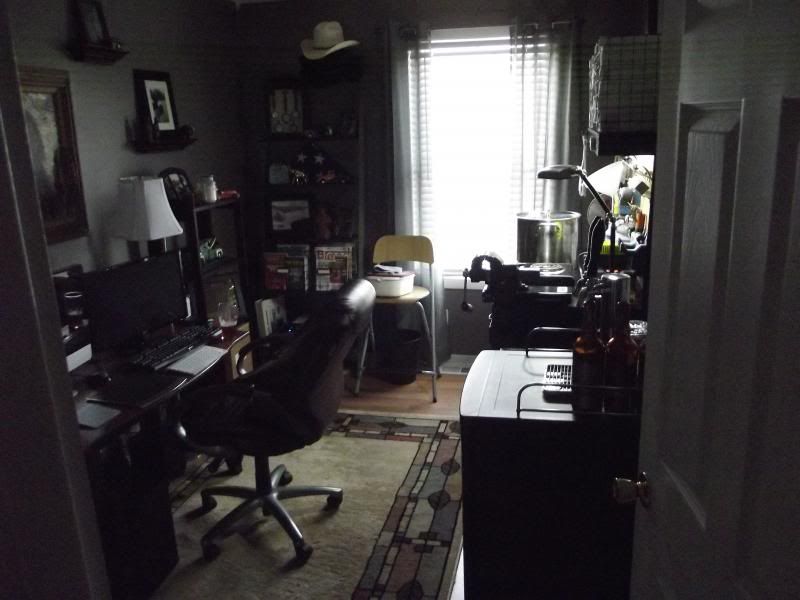thisgoestoeleven
Well-Known Member
I've been thinking about this my past couple brew days, and I've found that much of the brewing that goes on isn't done on large-scale, propane-powered, electric-pumped rigs with lots of polished keggles, specialized equipment, etc. Most of the brewing that I've seen done, whether on here, r/homebrewing, and in my own experience, is done stovetop in smallish kitchens.
Therefore, I thought it would be really useful for me and people like me (somewhat proficient brewers working in a limited or non-ideal space) to have a thread devoted to tips, tricks, and hacks for making the small kitchen brew day a less daunting, more user-friendly experience. I've got a few little tidbits that I'm going to share, and I was hoping others could do the same. Anyway, here goes:
1. Make sure you THOROUGHLY clean your stovetop before starting a brew, especially if your pot is bigger than your burner. Any food residue on the stovetop underneath your pot will scorch and be a huge PITA to clean later.
2. If you'd like to go to all-grain brewing but storage space and/or money is at a premium, I've had really good results using an old bottling bucket wrapped in Reflectix foil insulation as a mash tun. Use a large paint strainer bag in lieu of a false bottom, and drain your wort out through the spigot. No stuck sparges because you're not using a manifold, no need to purchase specialized equipment. (just make sure you've got another bucket to bottle from, you don't want fermented beer coming in contact with something that holds raw grain for contamination reasons)
3. If your brew pot won't fit in your sink and you don't have a hose (like me), hook up your wort chiller and use that to fill the pot.
Therefore, I thought it would be really useful for me and people like me (somewhat proficient brewers working in a limited or non-ideal space) to have a thread devoted to tips, tricks, and hacks for making the small kitchen brew day a less daunting, more user-friendly experience. I've got a few little tidbits that I'm going to share, and I was hoping others could do the same. Anyway, here goes:
1. Make sure you THOROUGHLY clean your stovetop before starting a brew, especially if your pot is bigger than your burner. Any food residue on the stovetop underneath your pot will scorch and be a huge PITA to clean later.
2. If you'd like to go to all-grain brewing but storage space and/or money is at a premium, I've had really good results using an old bottling bucket wrapped in Reflectix foil insulation as a mash tun. Use a large paint strainer bag in lieu of a false bottom, and drain your wort out through the spigot. No stuck sparges because you're not using a manifold, no need to purchase specialized equipment. (just make sure you've got another bucket to bottle from, you don't want fermented beer coming in contact with something that holds raw grain for contamination reasons)
3. If your brew pot won't fit in your sink and you don't have a hose (like me), hook up your wort chiller and use that to fill the pot.


